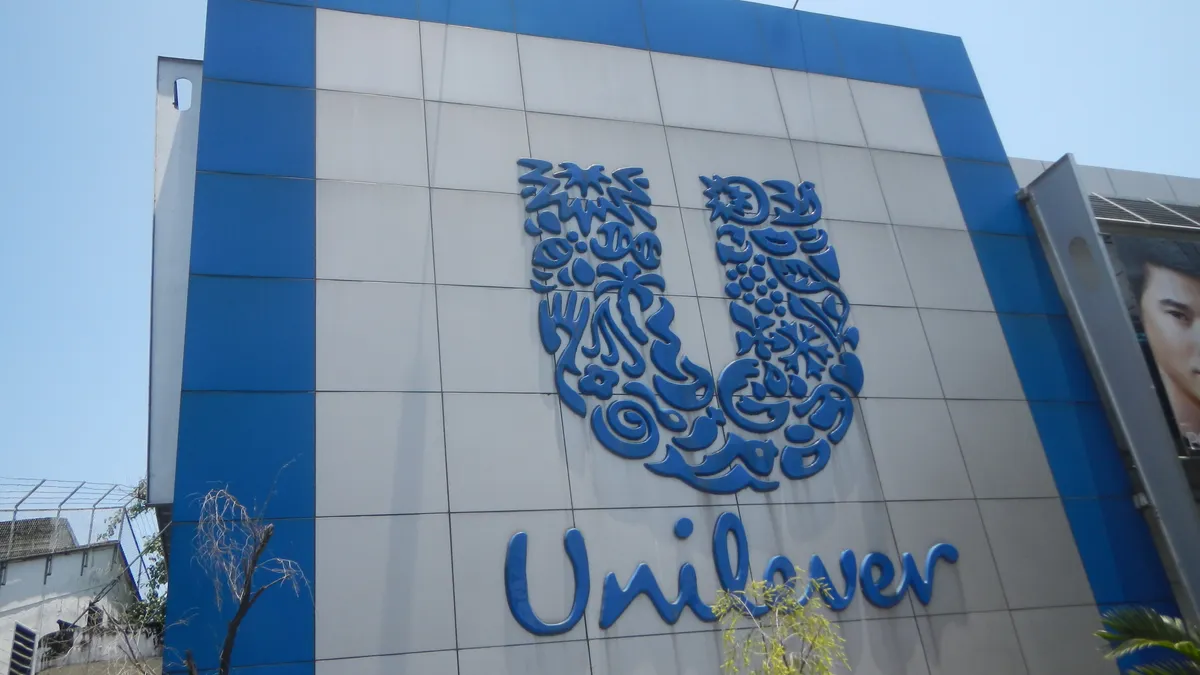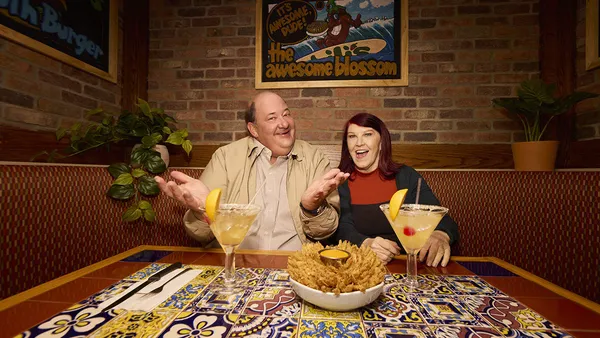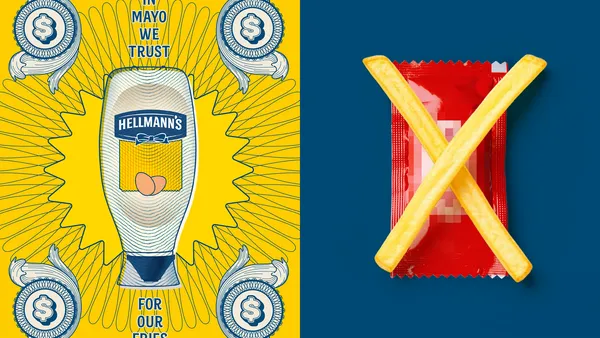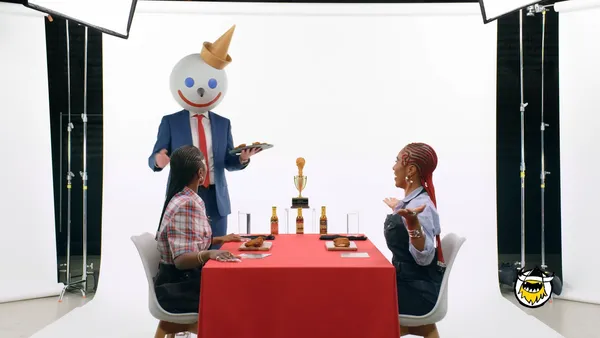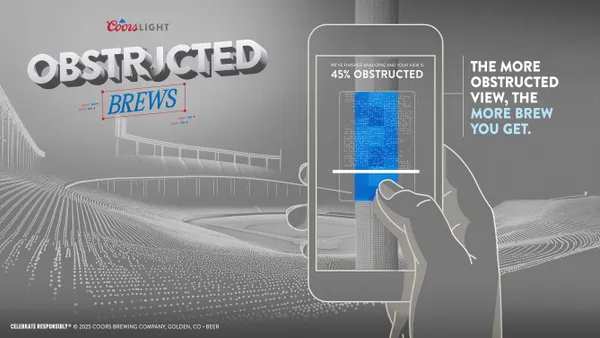Dive Brief:
- Unilever expects to put "significant investment" toward brand campaigns and innovations tailored to the coronavirus pandemic in the year's second half, CFO Graeme Pitkethly said on a call discussing H1 results with investors. A return to spending comes after the CPG giant deliberately kept some of its "powder dry" in Q2 as it grappled with challenges related to the coronavirus, leading brand and marketing spend to decline by 100 basis points, Pitkethly said.
- While some buckets of Unilever's business, like out-of-home consumption, have taken a hit, areas like e-commerce are booming. E-commerce made up 8% of Unilever's total business in H1 2020 compared to 6% in the year-ago period.
- Sales on e-commerce grew by 49% in H1 and 62% in Q2, CEO Alan Jope said on the call. The boost came as brands adjusted to pandemic-related trends. Food and beverage line Knorr, for example, ran a digital recipe inspiration campaign via its Recipedia website as more people cooked at home. The effort helped drive online conversions and double-digit e-commerce sales growth, according to Jope.
Dive Insight:
Like many global marketers, Unilever saw aspects of its business decimated by coronavirus-related closures in the year's first half, as out-of-home sales at restaurants, tourist hubs and similar venues slid 42% and foodservice declined by 56%, per Jope. But underlying sales growth was down just 0.3%, far better than the 4.3% drop forecast by analysts, The Wall Street Journal reported.
There were other, potentially more significant silver linings in the CPG giant's H1 results as well, as the company saw an acceleration of its e-commerce sales and new opportunities to invest in brands as consumers adjust to life under the pandemic.
"We've stopped out-of-home advertising. We've eased back advertising to people in severely locked down areas who were unable to shop," Jope told investors on the call. "But by contrast, our brands are communicating digitally with messages that are relevant for lockdown living, things like stay inspired, home barbecue seasons and the summer staycation messages that I'm sure many of you will be familiar with."
The positives could stick around as pandemic management and recovery remain patchy in key regions, including the U.S., and as consumer wariness toward in-store shopping and large crowds linger. Jope was confident that online shopping, particularly in the grocery category, would not return to pre-pandemic levels.
At the same time, Unilever's packaged foods business has seen a windfall as stuck-at-home-consumers return to cooking and comfort meals, a resurgence that's similarly bolstered rivals like Kraft Heinz. Unilever's packaged food and beverage portfolio grew 17% in Q2 as consumers stocked up on soups, meal kits and ice cream, according to Jope, who called the trend "a radical shift to in-home meal consumption."
Marketing could be a key lever in ensuring renewed consumer interest holds over the long term, and Pitkethly's comments indicate that Unilever will again ramp up brand campaigns in these areas as coronavirus-related lockdowns ease or lift. While some aspects of marketing production have halted with the closure of studios, Unilever has discovered new efficiencies, Pitkethly said, such as reusing existing advertising assets, but modifying them to be more relevant to the pandemic environment.
On the messaging front, Unilever is putting more resources toward marketing that is "explicitly purposeful," according to Jope, which has been a central focus for the company for years, but now features issues particular to the pandemic, such as hygiene. The marketer recently established the Hygiene and Behavior Change Coalition to help combat the pandemic, and the initiative expects to reach 330 million people across 40 countries in its first phase, per Jope.
Even as Unilever centers more of its marketing on digital channels and e-commerce, the company is in the middle of an advertising pause on Facebook, Instagram and Twitter in the U.S. that will last through at least the end of 2020. The wide-ranging freeze, which was announced in late June, arrived as hundreds of marketers, including Verizon, The North Face and Patagonia, enacted a boycott against Facebook and other platforms in a bid to pressure them to do more to curb hate speech and the spread of misinformation — causes that have received fresh relevance in the U.S. in the wake of mass protests over the killing of George Floyd while in police custody.
Unilever has stated it's not participating in a boycott, The Drum reported, and has no affiliation with the Stop Hate for Profit campaign that's raised public awareness of the effort.
"We have been really engaging with the social media players, not in an activist way, or fighting against them and then shouting at them," Aline Santos, the top marketer at Unilever, told The Drum in an interview earlier this month. "We have been very much at the center of the discussion within those companies."



